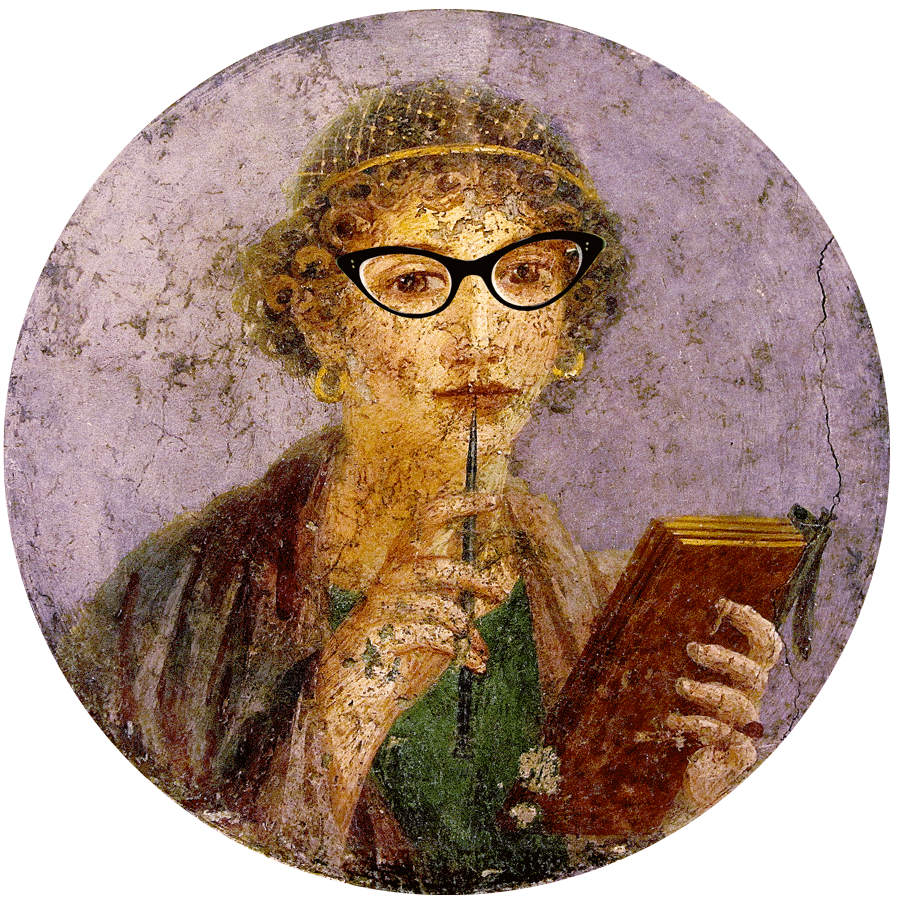By Lee Lanzillotta

Lucian may not be most people’s idea of the first author they should read in Ancient Greek. My professors generally suggest Plato or perhaps Xenophon as a good starting point, even though one of them specializes in the Greek and Latin novel. Yet these writers aren’t anywhere near as ridiculous or funny. As someone who – I should not admit this, but here we go – read Catullus, Martial, Terence, and Petronius before Cicero or Vergil, I believe humor is a crucial part of learning. You’ve got to read the silliest, stupidest, weirdest stuff first while you’re finding your footing in any language, but most especially dead ones.
It’s so much easier to slog through a passage when you’re giggling hysterically at the words as you slowly figure them out. While I do wish I had read Cicero earlier on, considering he’s actually way more entertaining and readable than I’d assumed, I also think it’s important to have some goofy, dumb stuff bookmarked on Perseus for when you just don’t have the energy to engage with a history-changing speech adorned with glitteringly cultivated sentences that are so long you can’t even see where they end.
For Latin, that was Petronius and Martial. In Classical Greek, I’ve started with Lucian. Multiple friends recommended him when I asked them which Greek authors they found the most amusing. He’s like the Douglas Adams or Terry Pratchett of his time – hilarious, approachable, yet exceptionally skilled at sliding in erudite jokes without ruining the fun. His sense of humor is also vaguely similar in its audacity and willingness to take things to their logical extreme. His vocabulary is also absolutely delicious. Where else might you find the marvelously meme-ish word “ὁμόνεκρος”, meaning “fellow dead guy”?
Anyone who thinks Classical Greek is all grave, bearded philosophers having dreary discussions about things that don’t actually make sense to “normal people” should try him out. You’ll be surprised (admittedly, you would probably also be surprised by “serious” Classical Greek writers as well – they’re more interesting, witty, and relevant than people tend to assume). Lucian’s sense of humor is sharp, outrageous, and sure to delight even the most day-dreamy student.
Unlike some of the broader Latin playwrights and writers (ahem, Plautus), he’s not constantly crass, but quick to point out the basic absurdities of life, death, and Greek myths in a way that is entertaining and accessible. While reading the Dialogues of the Dead with Jenny, I can often imagine comedic music playing as garish cartoon skeletons bumble about absurdly. The dialogue format of so many of his works allows one to easily imagine the various characters as actors upon a stage or cinema screen. Really, it is a great surprise none of the Dialogues have been adapted for television or film. Their wit shines brilliantly across the centuries, calling out to the jokester lurking within every tired, overworked Greek 102 student who dreads next week’s round of paraphrases and conjugation drills.





Hello Jenny!
I’m so happy to see your new website. I’m a Persian researcher of ancient Greek language and learn it as teach yourself because I cannot have any tutor in Persia/Iran. As for Lucian, I like his works and try to read “a true story” in English because there is no Persian translation of it. I wish I can translate it from Greek into Persian on day.
Best wishes
χαῖρε, Farhad!
Great to hear from you again! For the “True Stories” there is a learner’s commentary that you might find useful: http://www.faenumpublishing.com/lucians-a-true-story.html
I am still amazed that there are students of Ancient Greek literally in places all over the world, even outside of the obvious “Western” tradition: I am humbled and glad to be part of such a cosmopolitan crowd! And I wish you good luck with your translation: Let me know when it is ready! 🙂
ἔρρωσο
Jenny